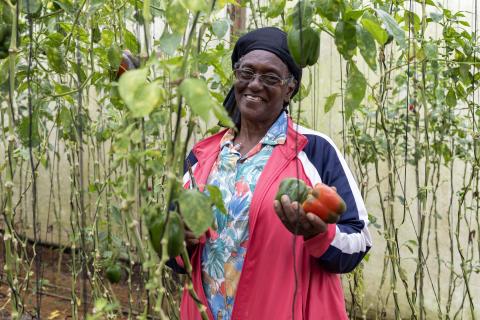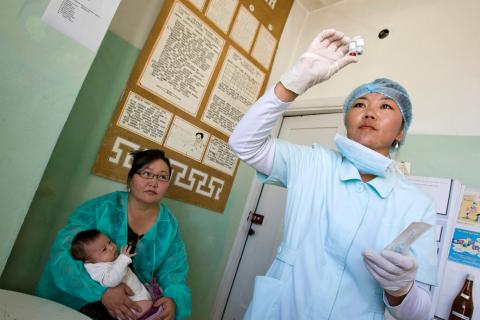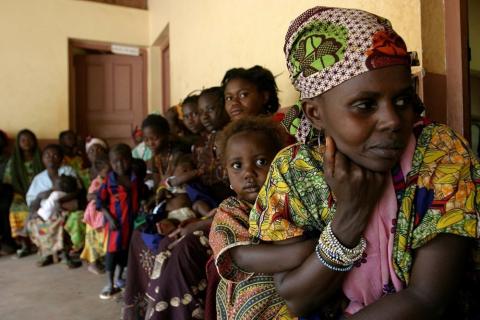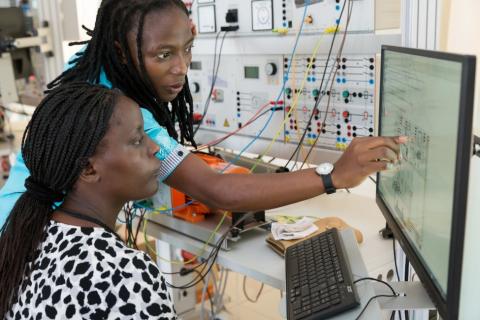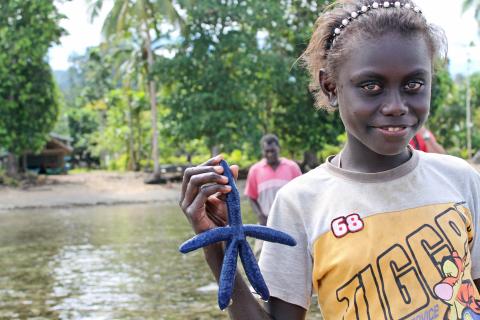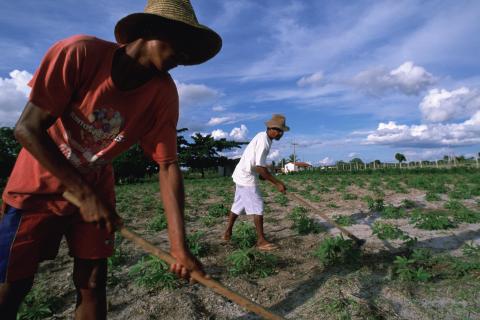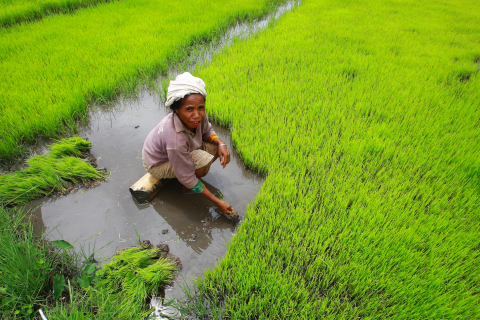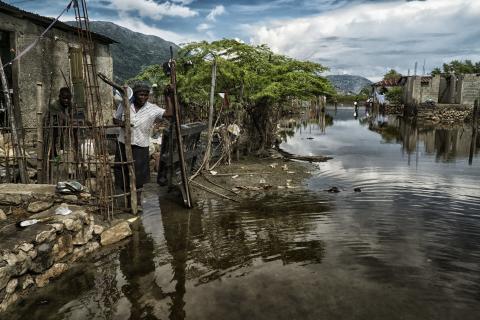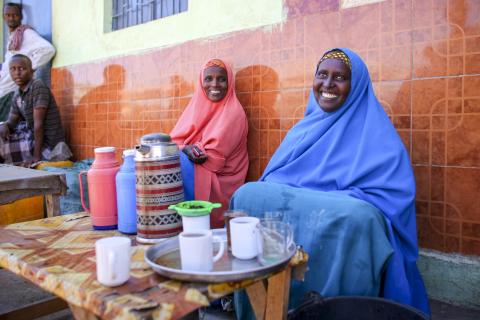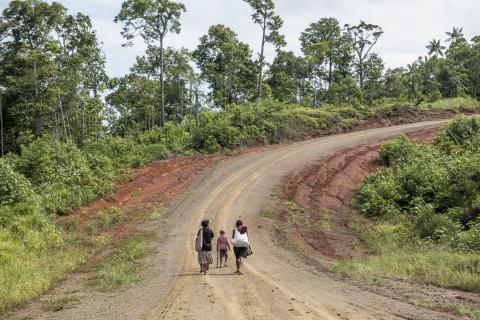UN DESA Policy Brief No. 183: Breaking the cycle: Addressing inequalities in child survival to promote inclusive social development
As the world prepares for the Second World Summit for Social Development in November 2025, profound disparities in child health and survival persist within and among countries, making it difficult for those furthest behind to break out of mutually rein-forcing cycles of poor health, poverty and social exclusion. This policy brief explores disparities in child mortality within and among countries and provides a series of recommendations aimed at ending preventable child deaths and reducing inequalities in child survival in different contexts.
UN DESA Policy Brief No. 180: Anticipating the extent and pace of population ageing in SIDS can help build a more sustainable future in these vulnerable states
Over the next decades, most small island developing States (SIDS) are projected to experience a rapid increase in both the share and the number of people aged 65 years or over. In half of the SIDS, the size of the older population will double between now and 2055. All SIDS, even those with youthful populations today, should embrace forward-looking strategies to capitalize on the opportunities that population ageing will bring, while also addressing the context-specific challenges it may pose.
UN DESA Policy Brief No. 176: Family-oriented policies and programmes in Voluntary National Reviews (2020-2024)
This brief presents a global analysis of 171 Voluntary National Reviews (2020–2024) from 141 countries addressing core aspects of family well-being by focusing on policies related to: poverty reduction (SDG1), food security and nutrition (SDG2), health and well-being (SDG3), quality education (SDG4), and gender equality (SDG5). It also considers complementary goals that influence the well-being of families, including access to water and sanitation (SDG6), housing, transportation, and inclusive urban development (SDG11), reduced inequalities (SDG10), as well as peaceful and inclusive societies (SDG16).
UN DESA Policy Brief No. 173: SDGs as a Framework for Addressing the Root Causes of Crisis
Converging crises have become a defining challenge of our time and have imposed high costs on developing countries. Reducing poverty and inequality and investing in healthcare and social protection are critical to building resilience against the impact of crises. The SDGs provide an effective roadmap to build such resilience capacity.
UN DESA Policy Brief No. 172: The New Landscape of Fertility and Family Planning 30 Years After Cairo and Beijing
Thirty years after the landmark Cairo and Beijing conferences, the world has witnessed both progress and continued challenges in many aspects of sexual and reproductive health, including adolescent childbearing and contraceptive use. Within the broad picture of progress and stalls in sexual and reproductive health, this policy brief examines in more depth the changes in adolescent birth rates and family planning in the context of global fertility decline over the last 30 years and discusses the challenges of living up to the commitments made at Cairo and Beijing moving forward.
UN DESA Policy Brief No. 165: What assets and innovations can governments mobilize to transform the public sector and achieve the SDGs?
Through investment in transformative public-sector change programmes, government agencies and organizations and personnel can unlock their capabilities to go beyond merely responding to disruptions. Fostering transformation and adaptive mindsets will be key to enabling them to anticipate and effectively address the pressing challenges within their societies, even in complex and dynamic environments.
UN DESA Policy Brief No. 161: On the path to an older population: Maximizing the benefits from the demographic dividend in the least developed countries
While many least developed countries (LDCs) are still experiencing persistently high fertility and rapid population growth, they have also begun to experience progressive population ageing. Preparing for population ageing in LDCs will be critical for achieving sustainable development and ensuring that no one is left behind. Maximizing the benefits from the demographic dividend will provide an opportunity for these countries to develop economically before their populations become much older.
UN DESA Policy Brief No. 159: Demographic Outlook for the Small Island Developing States: Implications of Population Trends for Building Resilience and Prosperity across SIDS
SIDS have small populations, limited resources and are highly vulnerable to the impacts of climate change. Understanding their demographic outlook will help them to address these unique challenges.
UN DESA Policy Brief No. 153: India overtakes China as the world’s most populous country
Taking account of future population trends in national development planning is essential for achieving the Sustainable Development Goals, in particular, those related to poverty, food security, health, education, gender equality, decent work, inequality, urbanization and the environment, and for ensuring that no one is left behind.
UN DESA Policy Brief No. 147: Old age inequality begins at birth: life course influences on late-life disability
Improving working conditions and access to quality education across the lifecycle can help reduce inequality in health outcomes among older adults. Expanding healthcare coverage and addressing the social determinants of health are also vital.
UN DESA Policy Brief No. 145: On the importance of monitoring inequality in life expectancy
Financing and enhancing statistical capacity for high-quality, timely and reliable disaggregated data in developing countries, is essential to better understand and respond to inequalities in life expectancy.
UN DESA Policy Brief No. 140: A World of 8 Billion
Wealthy countries and the international community should support sustainable development in low-income and lower-middle-income countries by providing the necessary technical and financial assistance so that their economies can grow rapidly using technologies that minimise environmental harms.
UN DESA Policy Brief No. 129: The monetary policy response to COVID-19: the role of asset purchase programmes
Central banks have relied heavily on unconventional monetary policy tools, especially large-scale asset purchases, to respond to the pandemic. These programmes have helped to stabilize financial markets and kickstart economic recovery. But the central bank asset purchases have also contributed to an underpricing of risk and sharp increases in asset prices.
UN DESA Policy Brief No. 128: Addressing climate change through sport
Climate change is one of the most pressing issues of our times. Sports plays an important role as part of the solution.
UN DESA Policy Brief No. 122: Adapting international development cooperation to reduce risk, enable recovery and build resilience
The COVID-19 pandemic has posed new demands on development cooperation in its various forms: finance, capacity support, policy change and multi-stakeholder partnerships. The ongoing challenge of the pandemic and its consequences has also shown the durability and adaptability of development cooperation.
UN/DESA Policy Brief #107: Social protection in rural areas: achieving universal access for all
Government action is required to ensure social protection measures, including floors, are available for all in rural areas.
UN/DESA Policy Brief #102: Population, food security, nutrition and sustainable development
Despite progress in recent decades, in 2019, almost 690 million people, or 8.9 per cent of the global population, were undernourished. After more than a decade of steady decline, the number of undernourished people has been rising since 2014.
UN/DESA Policy Brief #98: Risk-informed finance
All financing must be risk-informed and resilient, and sufficient financing must be available for investments in risk reduction and resilience, at national and global levels.
UN/DESA Policy Brief #93: Social policy and social protection measures to build Africa better post-COVID-19
This policy brief reviews the socio-economic impacts of the COVID-19 crisis in Africa and presents the continent’s social protection responses.
UN/DESA Policy Brief #88: Financing sustainable forest management: a key component of sustainable COVID-19 recovery
This policy brief aims to provide an analysis of the adverse impacts of the pandemic on the income generation function of forests, and the current and future funding trends for forests.
 Welcome to the United Nations
Welcome to the United Nations

